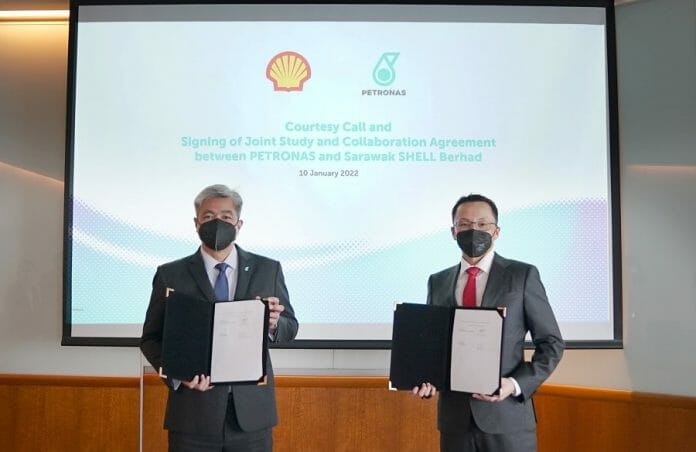National oil giant, Petronas has signed a Joint Study and Collaboration Agreement (JSCA) with Sarawak Shell Berhad to explore opportunities and project collaborations in carbon capture and storage (CCS) to help provide carbon dioxide (CO2) storage solutions in Malaysia and the region.
Under the JSCA, both parties will perform an integrated CCS Area Development Plan study to support the decarbonisation ambitions of both parties within selected locations offshore Sarawak. The scope of the agreement includes exploring the provision of decarbonisation service to Shell’s local and cross-border facilities, as well as to other potential regional customers. The outcome of the study will produce options in potential areas for further collaboration.
Signing the agreement Executive Vice President and Chief Executive Officer of Upstream, Adif Zulkifli said, “PETRONAS has a long-standing partnership with Shell. We are confident that this latest collaboration will inspire more innovation towards managing carbon emissions and advancing our shared ambition of delivering energy solutions in a responsible and sustainable manner.
“This collaboration underscores the continuous efforts to explore partnership opportunities in CCS. We will continue this trajectory to unlock opportunities that could potentially help reduce emissions and achieve our net-zero carbon emissions aspirations. This is one of the many efforts to position and establish Malaysia as a leading CCS solutions hub in the region,” he added.
Last November, it signed an MOU with ExxonMobil Exploration and Production Malaysia Inc. to explore opportunities in CCS technologies to support the decarbonisation of Malaysia’s upstream industry as well as to provide CO2 storage solutions for the region. In December, an MoU was signed with POSCO International Corporation and POSCO Engineering & Construction Co. Ltd to assess for opportunities to unlock CCS potential.
Petronas is taking deliberate steps to build a resilient and sustainable portfolio to support the transition towards lower-carbon energy sources. The Company is also pursuing more zero continuous flarings and venting of hydrocarbons to reduce emissions aligned with its aspiration to achieve Net Zero Carbon Emissions by 2050.









